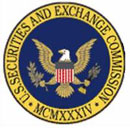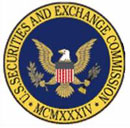|
|
|
Bernanke Says Fed Will Do What's Needed
Securities |
2007/08/31 08:32
|
| Federal Reserve Chairman Ben Bernanke pledged Friday that the central bank will "act as needed" to keep the credit crisis that has unhinged Wall Street from hurting the national economy.In anxiously awaited remarks, Bernanke didn't specify what the Fed's next move will be but made clear policymakers are keeping close tabs on the problem, which has roiled investors in the United States and around the globe. Even as Bernanke vowed Fed action, he sought to temper investors' expectations. "It is not the responsibility of the Federal Reserve — nor would it be appropriate — to protect lenders and investors from the consequences of their financial decisions," Bernanke said. "But developments in financial markets can have broad economic effects felt by many outside the markets, and the Federal Reserve must take those effects into account when determining policy." President Bush, meanwhile, said the economy was strong enough to deal with turbulence on Wall Street. Bush, speaking in the Rose Garden, said he was briefed on the financial markets by Treasury Secretary Henry Paulson. "The markets are in a period of transition as participants reassess and reprice risk," the president said in a rare comment about Wall Street. "This process has been unfolding for some time and it's going to take more time to fully play out. As it does, America's overall economy will remain strong enough to weather any turbulence." Many believe the odds are growing that the Fed will cut its most important interest rate, now at 5.25 percent, by at least one-quarter percentage point on or before Sept. 18, its next regularly scheduled meeting. The Fed hasn't lowered this rate in four years. The Fed "will act as needed to limit the adverse effects on the broader economy that may arise from the disruptions in financial markets," Bernanke told an economics conference here. On Wall Street, stocks rose after the Fed chief's remarks. The Dow Jones industrials were up around 90 points in late-morning trading. To guide the Fed in terms of what its next move will be, Bernanke said policymakers will pay especially close attention to the "timeliest indicators" as well as information gleaned from businesses and banks around the country. Economic data that was taken before the credit markets really seized up in August will be much less useful to policymakers to assess the country's economic health, he explained. It was his first speech — and his most extensive comments — since the credit crunch took a turn for the worst in August. The carnage in credit markets and the turmoil on Wall Street pose the biggest test of Bernanke's skills since taking the Fed helm 19 months ago. President Bush was announcing steps Friday to aide homeowners who are having trouble making the payments on risky mortgages. The Fed's most important interest rate, called the federal funds rate, has been at 5.25 percent for more than a year. Any reduction to this rate would mean lower interest rates for millions of people and businesses. That's why it is the Fed's main tool for influencing economic activity. After listening to Bernanke's speech, John Makin, principal at Caxton Associates Inc., believed the Fed was moving "a tiny bit closer" to a rate cut. In his remarks to a high-profile conference here on housing sponsored by the Federal Reserve Bank of Kansas City, Bernanke discussed some of the steps the Fed has taken so far to deal with the credit crunch. While problems were triggered largely by heightened concerns about higher-risk "subprime" mortgages made to people with blemished credit histories or low incomes, Bernanke said "global financial losses have far exceeded even the most pessimistic projections of credit losses on those loans." To stabilize wobbly markets, the Fed on Aug. 17 sliced its lending rate to banks by a half percentage point to 5.75 percent. It also has pumped billions of dollars into the financial system to help banks and other institutions get through the credit hump and carry out their business. The Fed's main concern, however, is the extent to which these problems might short-circuit economic growth. "The further tightening of credit conditions, if sustained, would increase the risk that the current weakness in housing could be deeper or more prolonged than previously expected, with possible adverse effect on consumer spending and the economy more generally," Bernanke said. The fear is that if credit continues to become harder for people and businesses to get, spending and investment will be crimped. That could hurt overall economic growth. In a worst-case scenario, the country could slide into a recession. Credit is the economy's life blood. It allows people to finance big-ticket purchases such as homes and cars and can help businesses bankroll expansions and other things that can boost hiring. After a five-year boom, the housing market went bust last year; problems are expected to persist well into next year as builders try to whittle down a glut of unsold homes. During the housing slump, a combination of higher interest rates and weaker home values clobbered homeowners, especially those with blemished credit histories or low incomes holding higher-risk "subprime" loans. With squeezed homeowners finding it impossible to make their mortgage payments or pay them in a timely fashion, foreclosures and delinquencies are soaring and are expected to get worse. Lenders have been forced out of business, and hedge funds and other big investors in subprime mortgage securities also have taken a big financial hit. Very low initial "teaser" rates jumping to much higher rates as they reset are socking some homeowners. Analysts estimate 2 million adjustable-rate mortgages will reset this year and next. Steep prepayment penalties have made it difficult for some to get out of their mortgages. Some overstretched homeowners can't afford to refinance or even sell their homes. Most of the carnage has been in the subprime market, but problems have spread to other more creditworthy borrowers. That has sent investors into periods of panic in recent weeks, causing stocks on Wall Street to careen wildly. |
|
|
|
|
|
|
SEC Approves 2 Fund Trading Settlements
Securities |
2007/08/24 02:56
|
| The Securities and Exchange Commission has approved two more settlements involving improper mutual-fund trading, with two former California hedge-fund managers agreeing to pay $275,000 to settle SEC charges. The SEC on Wednesday submitted for court approval a settlement with Brent Federighi, a former manager for hedge funds Ilytat and Gage, that calls for him to pay a $175,000 civil penalty and to be banned from working for an investment adviser for 18 months. Separately, Michael Hoffman, 44 years old, who founded Ilytat, agreed to pay a $100,000 civil penalty and accepted an 18-month ban on working for an investment adviser. Both men settled without admitting or denying wrongdoing. The SEC had accused Federighi of fraud in connection with "late trading" the practice of buying mutual fund shares after the 4 p.m. close of trading while receiving that day's closing price. The SEC found that Hoffman aided and abetted Bear Stearns & Co., which had allegedly processed the improper trades over a two-year period starting in 2000. Bear Stearns more than a year ago agreed to pay $250 million to settle related SEC charges, including a $90 million civil penalty that was the biggest imposed on a brokerage firm under SEC Chairman Christopher Cox. "Mr. Federighi is delighted to have this matter resolved," his lawyer, William Goodman, said. "He is looking forward to re-entering the industry once the terms of the injunction have been complied with." Hoffman closed Ilytat in 2002. Shortly after, Federighi started Gage. Gage operated until September 2003, when allegations of widespread mutual-fund trading abuses surfaced. A lawyer for Federighi declined to comment. Tarek Helou, a lawyer for Hoffman, said that "Mr. Hoffman put an end to these trading practices at his firm more than five years ago. He did so long before it became a public issue, and he cooperated fully with the SEC. He is pleased that this is now behind him and is focused on moving forward." |
|
|
|
|
|
|
'Grand Theft Auto' Maker Put On Notice By SEC
Securities |
2007/08/17 09:26
|
| Take-Two Interactive Software Inc., maker of the "Grand Theft Auto" video game franchise, said Wednesday it received a Wells notice from the Securities and Exchange Commission indicating that the agency may file charges against the company following an investigation of its past stock options practices. It was the latest in a string of blows to Take-Two, which earlier this month delayed the release of its most important upcoming title, "Grand Theft Auto IV," and warned it would post a loss for the year. The company is also still reeling from a shareholder coup that ousted its former management earlier this year. In an SEC filing, Take-Two said the SEC staff informed the company that it plans to seek authority from the Commission to file charges and pursue a civil monetary penalty. The Wells notice gives Take-Two a final chance to respond to the SEC and convince the agency not to file charges. In the filing, Take-Two said it expects "to resolve this investigation by means of a settlement rather than a contested litigation of charges ... the 'Wells' call represents a significant step forward towards that resolution." Take-Two said in April it had received a formal order of investigation from the SEC. The New York-based company had said a review uncovered a significant number of option grants that were backdated during a period of more than six years to August 2003. In February, former Take-Two Chief Executive Ryan Brant pleaded guilty to criminal charges over backdating options, becoming the first ex-CEO to do so in recent probes into options irregularities at dozens of U.S. companies.
|
|
|
|
|
|
|
Ex-CEO guilty in backdating of options
Securities |
2007/08/08 08:50
|
In a significant slap at Silicon Valley, the first chief executive to stand trial for the backdating of stock options was found guilty Tuesday of securities fraud and making false statements. Gregory L. Reyes, former CEO of Brocade Communications Systems Inc. of San Jose, faces the possibility of 20 years in prison and a $5-million fine for rewarding key employees with options to buy company stock at artificially low prices.
The criminal case has been closely watched by technology firms, many of which maintained that the widespread practice of backdating options was harmless and legal. This so-called scandal, executives quietly asserted, would quickly fade.
Moments after Reyes' conviction on all 10 counts, that belief began to waver, industry observers said.
"It's clear that this jury believes backdating was a serious crime," said Kirk Hanson, executive director of the Markkula Center for Applied Ethics in Santa Clara, Calif. "Every executive in Silicon Valley who has been waiting to find out if the Department of Justice will charge them now has a strong incentive to begin talking to prosecutors."
Dozens of companies throughout the valley and elsewhere have been ensnared in backdating cases.
After the verdict was read, the 44-year-old Reyes appeared stunned. He stared straight ahead, even when U.S. District Judge Charles Breyer dismissed the jury and then left the courtroom himself. Reyes finally stood up and made his way over to his wife, Penny.
She cried, and they held each other tight for a long time.
Reyes is a Silicon Valley native son with deep technology industry roots. His father, Gregorio, is a management consultant and has served as an executive and board member in the semiconductor and disk drive industries. His uncle George is the chief financial officer of Google Inc. Reyes also co-owns the San Jose Sharks hockey team with a consortium of Silicon Valley leaders.
Known in the industry for his aggressive style, Reyes built up Brocade from a company with $24 million in annual revenue in 1998 to $750 million in 2006. His antics to motivate employees included smashing pumpkins inscribed with a competitor's name and blowing up a competitor's product with a cannon.
David A. Kaplan, a technology historian, said he couldn't remember the last time an executive at a major Silicon Valley company was tried and convicted in a federal courtroom.
"Prosecutors have discovered Silicon Valley. If I were a valley executive, I'd be taking note," Kaplan said.
Reyes' lawyer, Richard Marmaro, declined to talk at the courthouse but issued a statement saying that his client would ultimately be exonerated.
"Today, we are disappointed. Tomorrow, we will continue the fight," Marmaro said.
Almost as distraught as the Reyeses were members of the nine-women, three-men jury. Three of the women shed tears. None of the jury members would talk to the media. They ejected reporters who got onto an elevator with them.
Interim U.S. Atty. Scott N. Schools dismissed the argument that the government was unfairly persecuting companies and executives over practices that were widely accepted.
"There's a test of that criticism — the jury," Schools said at a news conference at his offices. Reyes' defense was vigorous and well-resourced, he noted, adding: "I don't think anyone suggested that this was anything other than a fair fight."
Still, Schools declined to cast the verdict as symbolic. "It's our assessment that this was a single jury evaluating evidence in a single case. All of these cases stand on their own merits."
Options are the lifeblood of tech companies. They give recipients the right to buy a stock for a set amount — the exercise price — within a certain period. Typically, the exercise price is the stock's market price on the day the option is granted.
But executives who backdated looked back in time and cherry-picked particularly low prices for the options. That would give the recipient an instant paper profit.
Backdating became a widespread tool for recruiting and retaining key employees during the dot-com boom of the late 1990s. In itself it is not illegal. But it is a crime to fail to report it in financial statements, which is what Reyes was accused of doing in collaboration with Stephanie Jensen, Brocade's head of human resources. By granting discounted options, a company also could be understating its expenses and thus overstating its profit, misleading shareholders.
During the five-week trial, the government argued that Reyes knew he was violating accounting rules when he backdated options. It further asserted that he lied on securities filings to cover up his deception.
Marmaro argued that the government had failed to prove that Reyes, like many CEOs, knew the accounting rules well enough to know that backdating options and not reporting the practice was wrong. Besides, the lawyer said, Reyes never backdated stock options he granted himself.
Charles Ross, a white-collar defense lawyer at Charles A. Ross & Associates in New York, said he was surprised at the guilty verdict.
"I thought the government did not have a lot of smoking-gun evidence," he said. "But it's a tough environment out there to defend any corporate fraud charge these days."
The verdict, Ross predicted, "will embolden some prosecutors."
The government's pursuit of backdating has caused more than 100 companies to restate their financial results.
Brocade, a designer of data storage networking products, restated its earnings between 2000 and 2004 and was fined $7 million by the Securities and Exchange Commission in May.
The SEC is pursuing a civil case against Reyes, former human resources Vice President Jensen and former Chief Financial Officer Antonio Canova. |
|
|
|
|
|
|
Court Denies CME's Effort To Halt Options-Trading Rule
Securities |
2007/08/04 09:22
|
| Exchange operator CME Group Inc. Friday lost an effort to strike down a rule at the rival Chicago Board Options Exchange Inc. that keeps some members at a CME unit from exercising their right to trade at the options market. Delaware Court of Chancery Vice Chancellor John Noble refused to issue a temporary restraining order against the new rule, which the options exchange enacted in the wake of the July merger that created CME Group. That deal brought together CME, owner of the Chicago Mercantile Exchange, and CBOT Holdings Inc., owner of the Chicago Board of Trade. Board of Trade members have long held special options-exchange rights, but the options exchange says the CME-CBOT merger wiped out those special rights. The judge said Friday that Board of Trade members have a good case that the options exchange's new rule barring them from the trading floor does unfair damage to their economic interests. But he refused to issue the restraining order, saying money will be an adequate remedy if the rule is ultimately struck down after trial. The Delaware judge also stayed action in a lawsuit filed by the Board of Trade against the options exchange last year, in which Board of Trade members claimed they are being cut out of a fair share of the option exchange's demutualization. Board of Trade members argue that the contribution they made in creating the CBOE in 1973 entitles them to a share of the equity being distributed in the options exchange's demutualization. The options exchange has asked the Securities and Exchange Commission to endorse its view that Board of Trade members aren't entitled to anything in that process. Judge Noble said he wants to see what the SEC says about the dispute before court action moves forward.
|
|
|
|
|
|
|
Gravity Agrees to Settle Suit for $10M
Securities |
2007/06/11 04:39
|
South Korea-based Gravity Co. Ltd., an online game developer, said Monday it and other defendants came to a preliminary agreement to settle a class-action lawsuit for $10 million. The lawsuit pertains to purchases of Gravity's American Depositary Shares between Feb. 7, 2005, and Nov. 10, 2005, and was filed on behalf of Gravity securities buyers. Under the proposed settlement, a $10 million fund will be set up to settle buyers' claims, of which Gravity will pay $5 million. The company said settlement administration and plaintiffs' lawyers' fees and various expenses will be paid from the fund before class-action suit members are paid. Gravity said in a statement that it "has denied and continues to deny any and all wrongdoing in connection with this matter, but believes that given the uncertainties and costs associated with litigation, the settlement is in the best interests of the company and its shareholders."
|
|
|
|
|
|
|
Ex-Enron lawyer seeks dismissal of SEC suit
Securities |
2007/06/08 06:58
|
| A former Enron Corp. lawyer asked a judge to throw out a lawsuit in which the U.S. Securities and Exchange Commission accuses him of helping ex-chief financial officer Andrew Fastow hide losses at the energy trader. Jordan Mintz, one-time top lawyer in Fastow's finance division, filed the dismissal request Tuesday in Houston. Mintz and former deputy general counsel Rex Rogers are accused of failing to publicly disclose the extent of Enron's use of partnerships Fastow controlled and the money he made from them. Rogers argues the agency waited too long after Enron's 2001 collapse to sue him. Mintz says lawyers told him Fastow's dealings were properly disclosed. Fifteen ex-Enron executives pleaded guilty to crimes in the conspiracy that destroyed Enron, once the world's largest energy trader. Neither Rogers nor Mintz has been criminally charged. |
|
|
|
|
|
|
Class action or a representative action is a form of lawsuit in which a large group of people collectively bring a claim to court and/or in which a class of defendants is being sued. This form of collective lawsuit originated in the United States and is still predominantly a U.S. phenomenon, at least the U.S. variant of it. In the United States federal courts, class actions are governed by Federal Rules of Civil Procedure Rule. Since 1938, many states have adopted rules similar to the FRCP. However, some states like California have civil procedure systems which deviate significantly from the federal rules; the California Codes provide for four separate types of class actions. As a result, there are two separate treatises devoted solely to the complex topic of California class actions. Some states, such as Virginia, do not provide for any class actions, while others, such as New York, limit the types of claims that may be brought as class actions. They can construct your law firm a brand new website and help you redesign your existing law firm site to secure your place in the internet. |
Law Firm Directory
|
|










